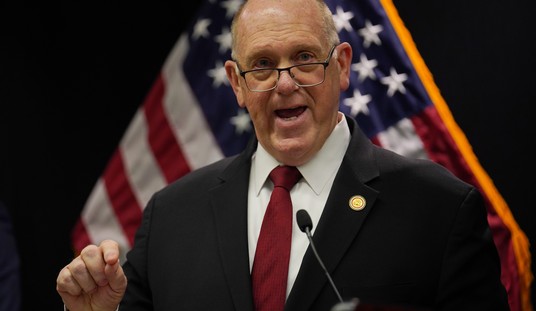Long overdue, and likely too late to do much good in this present crisis, but the US has to start somewhere to gain control over its pharmaceutical access. The second pandemic originating from China in the past decade-plus has shut down a significant part of their manufacturing capacity, including that which produces medicines and/or component materials for American consumers, not just for coronavirus response but for a wide range of medical issues. The risk for running out of potentially life-saving medications has risen considerably, and the White House wants to push manufacturers to bring those supply chains back home:
The global spread of the coronavirus is reigniting efforts by the Trump administration to encourage more American manufacturing of pharmaceuticals and reduce dependence on China for the drugs and medical products that fuel the federal health care system.
The effort includes a push by the White House trade adviser Peter Navarro to tighten “Buy American” laws so federal agencies are required to purchase American-made pharmaceuticals and medical equipment, according to people with knowledge of the plans.
The administration has been preparing an executive order, which could be released in the coming days, that would close loopholes allowing the government to purchase pharmaceuticals, face masks, ventilators and other medical products from foreign countries. The hope is that increasing government demand for American-made drugs and medical products will provide an incentive for companies to make their products in the United States, rather than China.
To help facilitate such production, the White House is also pushing for streamlined regulatory approvals for American-made products and more detailed labeling of the origin of products made offshore, these people said.
This is of particular concern for patients with significant chronic medical issues, perhaps especially transplant patients. Their survival depends on a reliable supply of immunosuppresive medication. How much of that comes from China or other foreign sources? Our family has been dealing with immunosuppressive medications for 25 years, and I am not sure how much or how little of my wife’s medications will get impacted by supply-chain issues in China stemming from the pandemic.
According to a new op-ed from Sen. Marco Rubio (R-FL) and Newt Gingrich, “up to 80 percent of active pharmaceutical ingredients are sourced abroad.” They want the US to set up proper incentives for pharmaceutical manufacturers to bring back those supply lines ASAP:
It is unacceptable that China holds this much leverage over America’s public health and economy, both essential components of our national security. For this reason, we propose that the U.S. take action to expand our production capacity while global supply chains are in flux and the global economy teeters on the edge of recession.
In exchange for commitments by U.S. companies to invest in America and take care of their employees, Congress and the Trump administration should take whatever steps possible to enable the private sector to expand. Doing so will help stabilize the U.S. economy, potentially help save American lives, and strengthen our ability to mitigate the effects of disease. Most importantly, it would be a high-return investment in our long-term capacity and independence from China during a moment when supply chains are up for grabs. …
First, the U.S. government should empower our robust private business sector to expand in order to meet new demand for medical supplies. Congress should cut taxes on manufacturers committing to new capital spending in America by making permanent the accelerated cost depreciation measures in the 2017 Republican tax law. New medical structures and equipment should be temporarily singled out for additional reductions.
Second, agencies with lending operations like the U.S. Small Business Administration should make low-cost capital available to businesses seeking to solve their supply chain problems by bringing production in-house to America, or otherwise buying from American small businesses.
Rubio discussed this with Tucker Carlson last night, noting that Rubio had warned about this issue a year ago when another disruption in Wuhan threatened pharmaceutical manufacture and distribution:
It’s late in this crisis to fix this issue, but it’s better to start now to get ahead of the next one. In the meantime, we have to hope that these distribution channels don’t dry up — because that could cost more lives than the WuFlu itself.








Join the conversation as a VIP Member